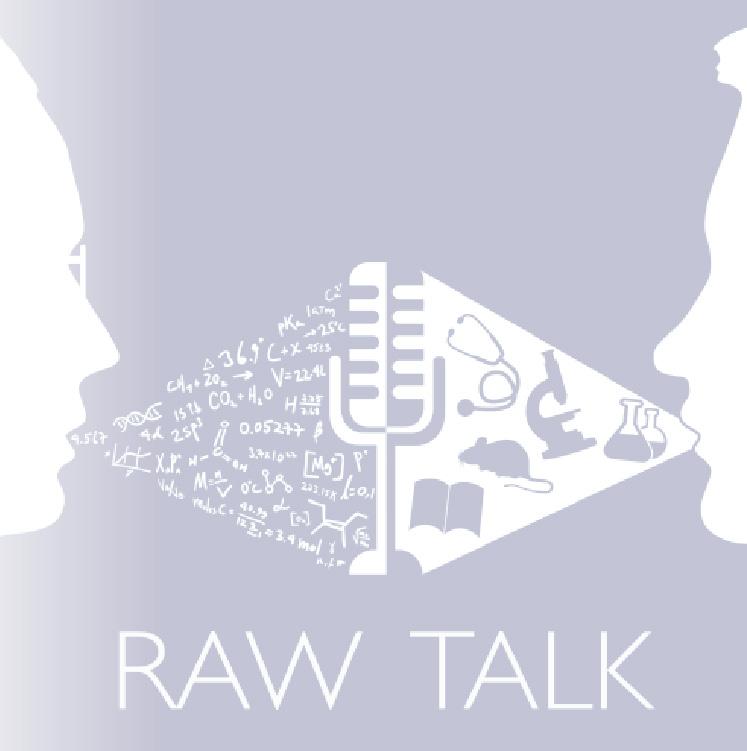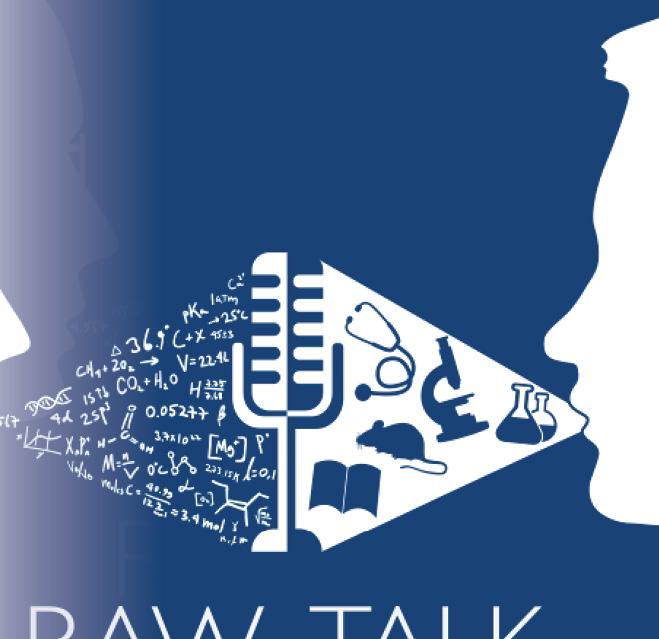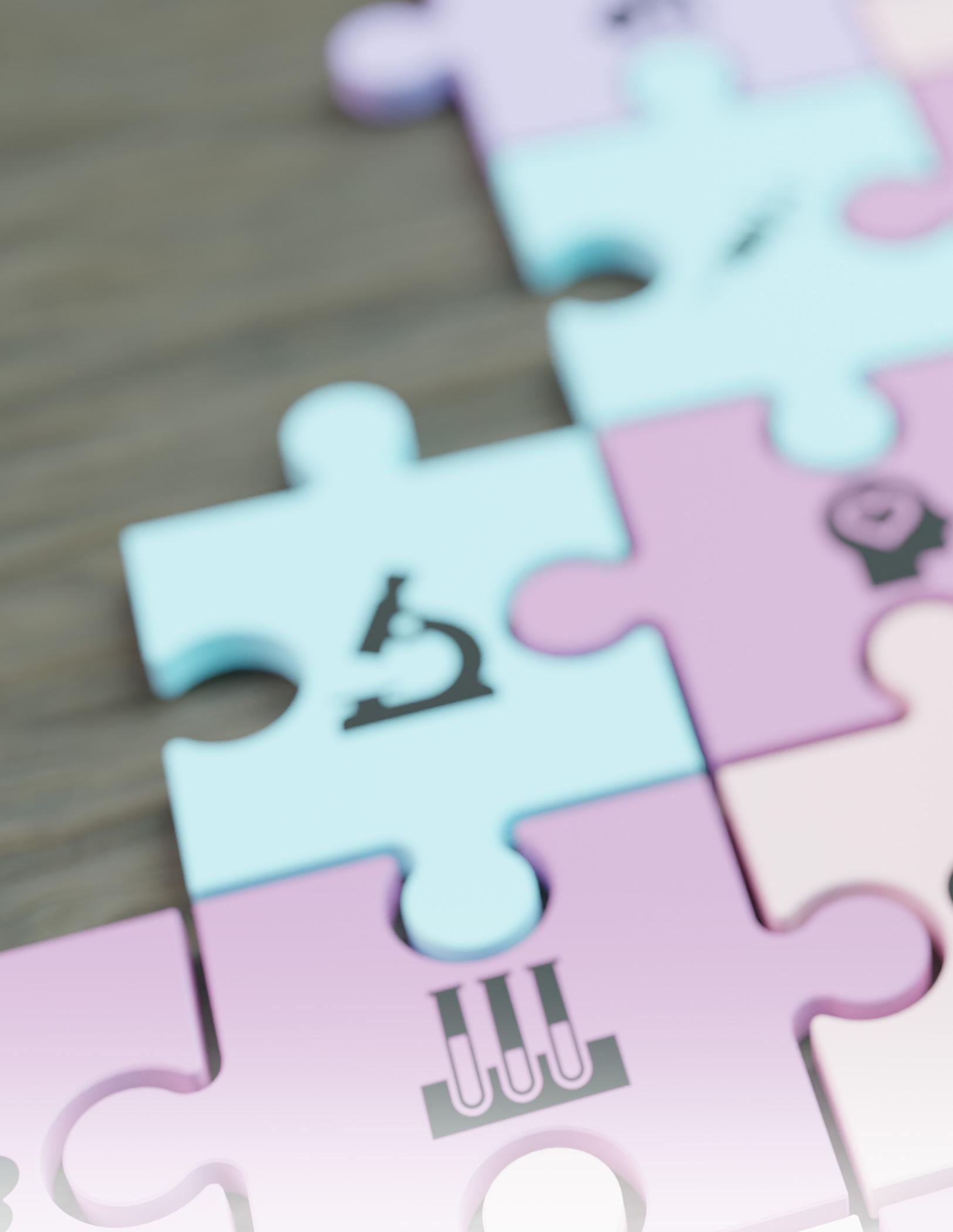
6 minute read
Raw Talk 103rd Episode
Where do I thrive the most?

Advertisement
By Vaidhehi Veena Sanmugananthan & Noor al Kaabi
“Where do I thrive the most?” a simple question that has been on my mind lately. One accompanied by others, who am I? What sorts of things do I value? What sorts of places set me up for success? It would be easy if every scenario I faced met my expectations for the ideal place to thrive in, but that isn’t necessarily the case. As a graduate student, I’m constantly pushed to thrive and succeed but am equally set up to be challenged and question my place in academia. I know I’m not alone in this train of thought. In episode #103 of Raw Talk Podcast: Raw Talk Roundtables: Underrepresentation in STEM, our guests discussed some of the challenges students from underrepresented backgrounds in STEM (science, technology, engineering, and mathematics) face in their environments, such as lack of representation, community, isolation, imposter syndrome, and many other topics. Our team was asked to think about where we felt we thrived the most. Here’s what they had to say:
“I thrive the most when I feel like I can speak my mind. When I’m in spaces where I feel like I have to think too much about how other people perceive me, I never get my ideas across as I want them to... I’m a bit more cautious with the language that I use. But… when there’s people around me that make me feel like I can have a conversation about whatever comes to mind… I can truly be myself.” ~ Noor Al Kaabi “I thrive the most in environments that support learning. I love being able to learn new things… and I love when making a mistake is not the end of the world… being able to like trial and error and just learn new things, without the pressure of… getting it right all the time.” ~ Atefeh Mohammadi
Oft en many of us attribute the inability to speak our minds in certain situations to our lack of capabilities. In the world of STEM, this is seen as a refl ection of the Imposter Phenomenon. Th e Imposter Phenomenon or Imposter Syndrome is associated with feelings of self-doubt, fraudulence and personal incompetence and can contribute to hesitancy in voicing our opinions in specifi c environments. I never liked the term “Imposter Syndrome” as it makes it sound like there is something innately wrong with you. Noor’s statement, however, is a good reminder of the oft en-neglected reality that external factors can just as equally contribute to our inability to express ourselves. As much as we may feel accountable, the people around us could also contribute to this challenge. As Noor mentions, the people and space around her contribute to when she feels like she can truly be herself. In the context of underrepresentation in STEM, it is important to consider how we can ensure that people from underrepresented groups are in environments where their ideas are valued. It’s hard to believe that being in an environment where you can make mistakes can be valuable. Intuitively making mistakes seems like a negative experience, however these experiences allow you to learn and grow. With that being said, it is not always easy to see things this way. On the episode, Mohsen Poorganji, the president of the International Students Group at the Institute of Medical Science shared some of the challenges that international students face when coming to study in a new country. “Th ey are at the disadvantage of not knowing the culture around here. I’m talking about both academy culture…[and] culture at the society level.” In fast paced and highly competitive environments like STEM, many international students have to face a cultural change and/or language barrier, all while trying to succeed in their fi elds.
I can only imagine that these situations make for little room to struggle when you are also in a field that is highly demanding. This urges me to think about whether institutions or workforces in STEM provide proper accommodation to support the learning of international students. It makes me wonder, how do we create environments where people have equal opportunity to make mistakes comfortably?


“I thrive the most when I feel included. e idea of just having... the food you eat, the clothes you wear, the ethnic group you belong to, the gender you identify with, the religion you practice being all assets… you bring all those things into the space that you occupy, and you’re included for the whole package.” ~ Rachel Peiris
Layan Elfl aki, President of the Black Graduate Student Association, mirrors Rachel’s perspective and gave her opinion on what diversity means to her: “To me, diversity means having individuals from diff erent backgrounds within your space. I feel like diversity also goes hand in hand with inclusivity… having more heterogeneous environments… where individuals feel safe and comfortable voicing their opinions.” I think that inclusivity and diversity go beyond just allowing a sense of comfort that encourages people to voice their opinions. Instead, it opens the door for more enriching and diverse outcomes which include multiple interdisciplinary perspectives. It is important to remind ourselves, we are a product of our life experiences. Each of us has something to bring to the table, and our unique perspectives forged from these experiences can enrich the work we do. Homogeneous environments that do not take these perspectives into consideration, are missing out on opportunities to expand and grow. So, where do I thrive the most?
I thrive the most in environments that encourage creativity. Creativity requires you to deviate away from traditional ways of thinking and to formulate unique ideas. To feel comfortable expressing creativity, one must feel that they can easily speak their mind, be supported in their learning, and feel like they are included for who they are and the ideas they bring. Many of our needs go hand in hand for the best environments for us to thrive. I hope my refl ection challenges you to think about where YOU thrive the most.
We would like to acknowledge the e orts and ideas of the rest of the episode #103 team. Daniel, Rachel, and Atefeh were Show Hosts and/or Content Creators on the episode. Jesse and Noor are our Co-Executive Producers.
To learn more about the experiences of underrepresented voices in STEM, we invite you to listen to episode #103 of Raw Talk Podcast, titled “#103 Raw Talk Roundtables: Underrepresentation in STEM”. Also, check out our references for more information on the bolded topics, as well as some interesting resources the team has compiled in the episode’s show notes on the Raw Talk Podcast website. References
1. Imposter Syndrome
Imposter Syndrome: What It Is & How to Overcome It. https://www.healthline.com/health/mental-health/imposter-syndrome. Accessed 1 Mar. 2022. 2. IMS International Student Group
About Us – IMS International Community. https://ims-international.ca/about/. Accessed 1 Mar. 2022. 3. U of T Black Graduate Student Association
“UofT’s Black Graduate Students’ Association (BGSA) (@BGSA_UofT) / Twitter.” Twitter, https://twitter.com/BGSA_UofT. Accessed 1 Mar. 2022.



READ IT ONLINE
issuu.com/imsmagazine imsmagazine.com @IMSMagazine











